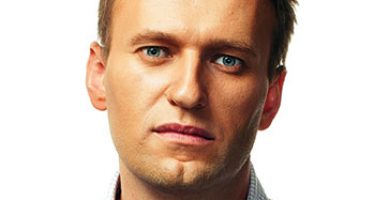Ank Bijleveld: The Relentless Pursuit of Synergies
 Upon re-entering national politics after an absence of seven years, newly-appointed Dutch Minister of Defence Anke Bijleveld was promptly dubbed “the little general”. Standing just 1m57 tall in a cabinet of physical, if not necessarily political, giants, Anke Bijleveld immediately sprang to national attention when she attended the full cabinet’s first official meeting at the royal palace in The Hague dressed in a bright yellow outfit – complete with a faux spider climbing her left shoulder – which instantly made the minister stand out amongst the subdued tones of her colleagues’ attire.
Upon re-entering national politics after an absence of seven years, newly-appointed Dutch Minister of Defence Anke Bijleveld was promptly dubbed “the little general”. Standing just 1m57 tall in a cabinet of physical, if not necessarily political, giants, Anke Bijleveld immediately sprang to national attention when she attended the full cabinet’s first official meeting at the royal palace in The Hague dressed in a bright yellow outfit – complete with a faux spider climbing her left shoulder – which instantly made the minister stand out amongst the subdued tones of her colleagues’ attire.
Mrs Bijleveld needs all the attention she can get. Her appointment to the Ministry of Defence was welcomed as the definitive proof that the scandal-ridden department remains a political backwater and an afterthought when it comes to budgetary allocations. Since the Berlin Wall came down in 1989, Dutch military expenditure has been slashed by half to barely €9bn annually. Instead of fielding two full divisions – one mechanised – the country can now barely muster a few brigades.
However, with the economy in the ascendant and mounting threat levels all-round, the government of Prime Minister Mark Rutte has now reluctantly decided to revert the trend, promising to boost defence spending to at least €900 million annually by 2020. Mrs Bijleveld has assured NATO partners that The Netherlands supports the 2% (of GDP) norm and will “grow” towards attaining that distant goal. Mr Humphrey would undoubtedly have completed the sentence with “in the fullness of time.”
Mrs Bijleveld will continue the policy of her predecessors to seek succour in close cooperation with the neighbours. Plans are afoot to tightly integrate the country’s air force with the Belgian “air component” and pool resources, training programmes, and tasks such as the quick reaction squadrons both countries keep on permanent alert to intercept intruders.
As of this year, a single Belgian or Dutch squadron will be responsible for guarding the entire Benelux airspace. The transport and airborne refuelling wings of the two countries will also be merged. The new unit with two tankers, fourteen transport planes, and a modest fleet of VIP jets will be based at Melsbroek airbase near Brussels.
The move follows the successful integration of the Dutch and Belgian navies which now operate under a single command seated in Den Helder. Under the agreement, Belgium is responsible for the operations and upkeep of the shared fleet of (twelve) mine clearance vessels while The Netherlands keeps the (twelve) destroyers, frigates, and ocean-going patrol vessels shipshape. The Dutch also provide significant replenishment and amphibious resources. This way, both countries are able to maintain a shared green water navy with added expeditionary capacity.
Mrs Bijleveld’s main challenge is to align procurement policies and processes with Belgium. That represents an uphill battle since the Belgians traditionally buy most of their military hardware in France whilst The Netherlands was thus far able to maintain its own defence industry, including naval yards, mostly supplemented with US or UK-sourced kit.
Both countries did agree to pursue economies of scale by shopping together. The first real test of this intend comes when Belgium at long last decides which fighter plane is to replace its worn-out F16s. The Dutch were an early-adopter of the Joint Strike Fighter and propose to pool maintenance and operational resources should Belgium also opt for the JSF.
The trouble is that neither The Netherlands or Belgium are fully convinced of the need for a robust increase of their defence spending. Synergies and the pursuit of maximum efficiency go only so far.
You may have an interest in also reading…
Shazia Bashir: Reaching Out with Integrity – Banking on Society
Contrary to popular perception, it is never quite easy for children of successful entrepreneurs to make their own mark in
Marcus du Sautoy: What We’ll Never Know
He poses questions that may never be answered and argues that the field of human knowledge is finite – confined
Alexei Navalny: Unwilling to Play Along
He is the man Vladimir Putin is said to fear the most. Alexei Navalny (41), a lawyer by trade and

















































































